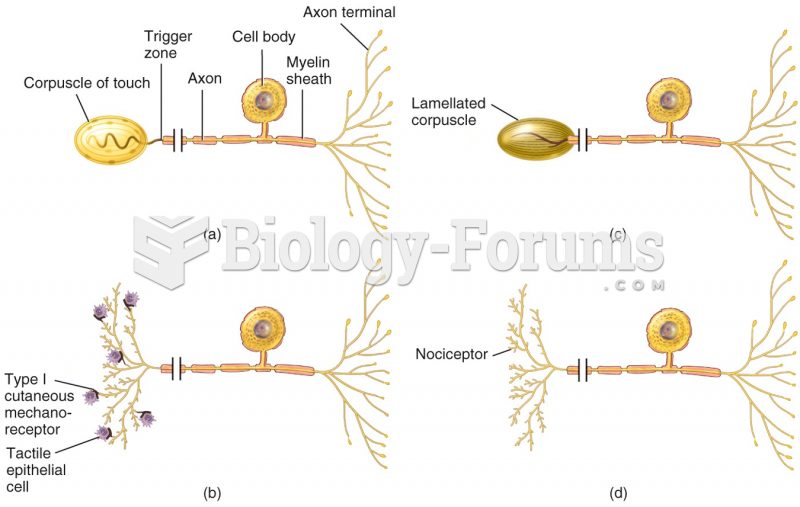|
|
|
There are more sensory neurons in the tongue than in any other part of the body.
Chronic marijuana use can damage the white blood cells and reduce the immune system's ability to respond to disease by as much as 40%. Without a strong immune system, the body is vulnerable to all kinds of degenerative and infectious diseases.
Oxytocin is recommended only for pregnancies that have a medical reason for inducing labor (such as eclampsia) and is not recommended for elective procedures or for making the birthing process more convenient.
Only one in 10 cancer deaths is caused by the primary tumor. The vast majority of cancer mortality is caused by cells breaking away from the main tumor and metastasizing to other parts of the body, such as the brain, bones, or liver.
The top 10 most important tips that will help you grow old gracefully include (1) quit smoking, (2) keep your weight down, (3) take supplements, (4) skip a meal each day or fast 1 day per week, (5) get a pet, (6) get medical help for chronic pain, (7) walk regularly, (8) reduce arguments, (9) put live plants in your living space, and (10) do some weight training.
 Gate Control Theory, Gate control, Open gate, Closed gate, Pain, Nerve transmission of pain, Pain ma
Gate Control Theory, Gate control, Open gate, Closed gate, Pain, Nerve transmission of pain, Pain ma
 Otitis media. This illustration shows an inflamed tympanic cavity, which is the most common source o
Otitis media. This illustration shows an inflamed tympanic cavity, which is the most common source o





